A brief history of American mail service

[ad_1]

GHI/Common Historical past Archive by way of Getty Photographs
A quick historical past of American mail service
It’s no secret that america Postal Service has been extra current within the minds of People throughout the previous couple of years. As a result of COVID-19 pandemic, there was a motion each to attach with others by way of a more meaningful medium than digital communication, in addition to to protect the lives and safety of frontline postal workers.
The USPS has a storied historical past starting in Colonial America, when revolutionaries wanted a strategy to talk with one another with out going by means of the British Royal Mail. The Royal Mail reserved the appropriate to open and browse any doc or package deal it carried, squelching any illicit actions or plans early People could have had. In consequence, the Constitutional Put up was created in secret and was key to the Colonies’ victory over the British Empire in 1783.
Right this moment, controversy surrounds the USPS, because it was politicized heavily during the 2020 presidential election concerning the service’s position in facilitating mail-in voting. Moreover, Postmaster Basic Louis DeJoy just lately introduced plans for the new postal vehicle fleet to be gas-powered as a substitute of electrical, inflicting a bout of criticism concerning the sustainability efforts of the USPS.
In honor of the lengthy postal custom in America, Stacker investigated the historical past of the U.S. Postal Service from Colonial occasions to current day utilizing quite a lot of historic, information, and authorities sources.
![]()
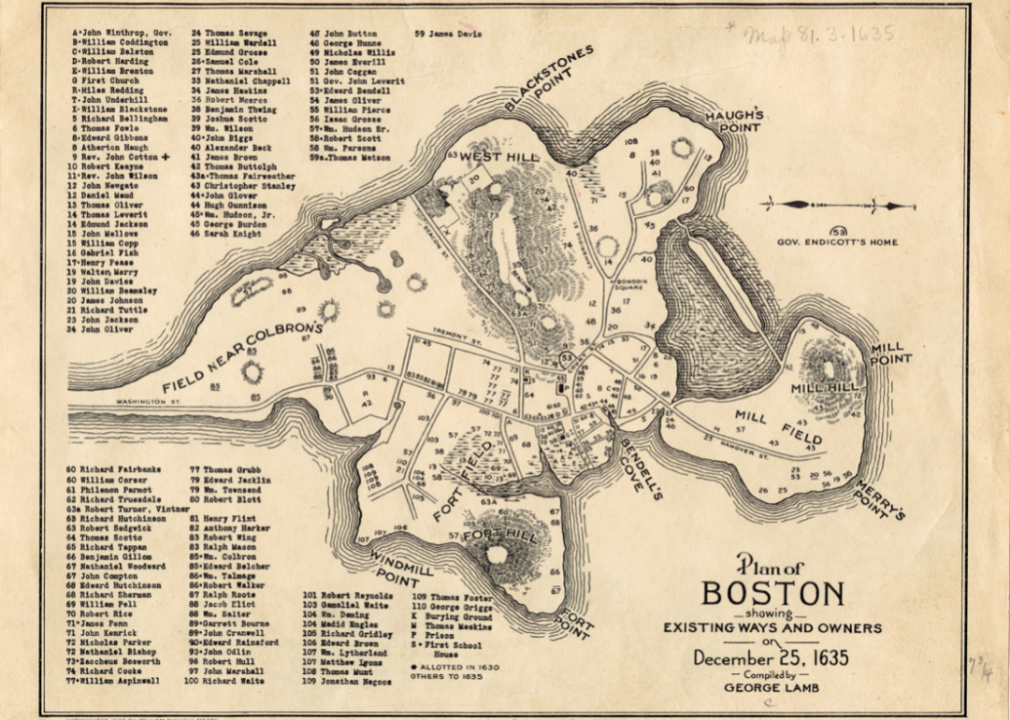
George Lamb // Wikimedia Commons
1639: Richard Fairbanks’ tavern is designated because the official repository for mail within the American colonies.
Richard Fairbanks’ tavern in Boston is broadly thought-about the primary put up workplace in America, chosen consistent with the English custom of getting mail drop-off places at cafes and taverns. Fairbanks was additionally a well known citizen and shut good friend of the Rev. John Cotton, who established the primary church in Boston. On the time the tavern started gathering mail in 1639, letters had been primarily used for communication between the Colonies and England and value a penny every to ship.
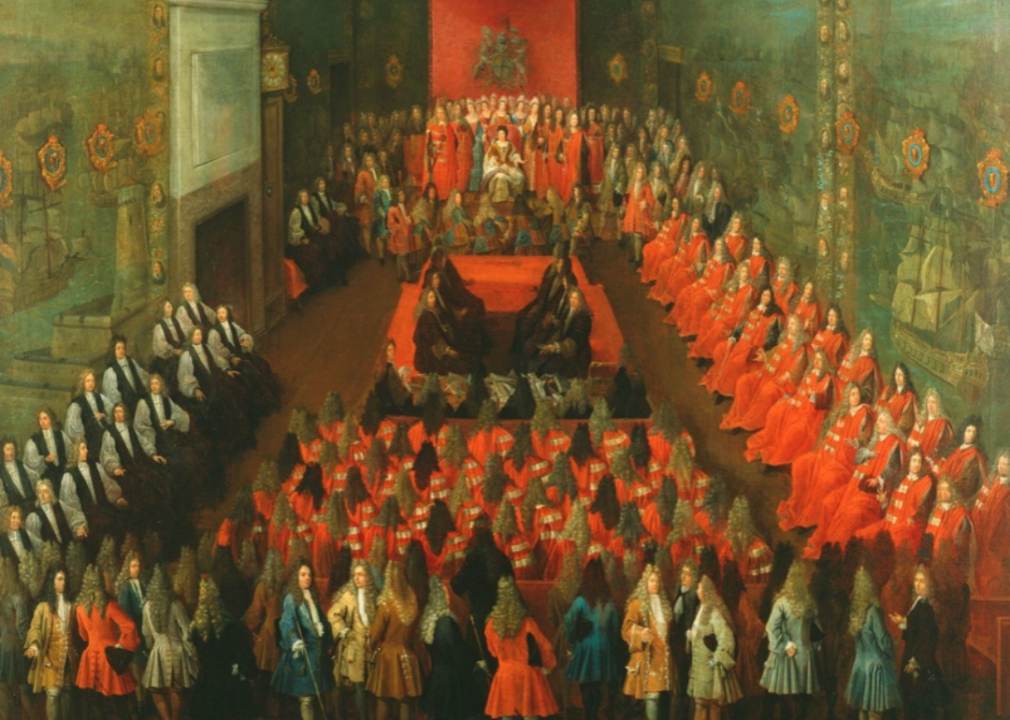
Peter Tillemans // Wikimedia Commons
1710: The Queen Anne Act is handed
The Queen Anne Act, formally known as the British Put up Workplace Act, was handed in 1710, however didn’t have an effect on the American postal system till 1711, when it instituted the Colonies’ first deputy postmaster normal. The act additionally established uniform postage charges for numerous kinds of mail despatched between America and Europe, one in every of many means by which the British authorities taxed the colonists.
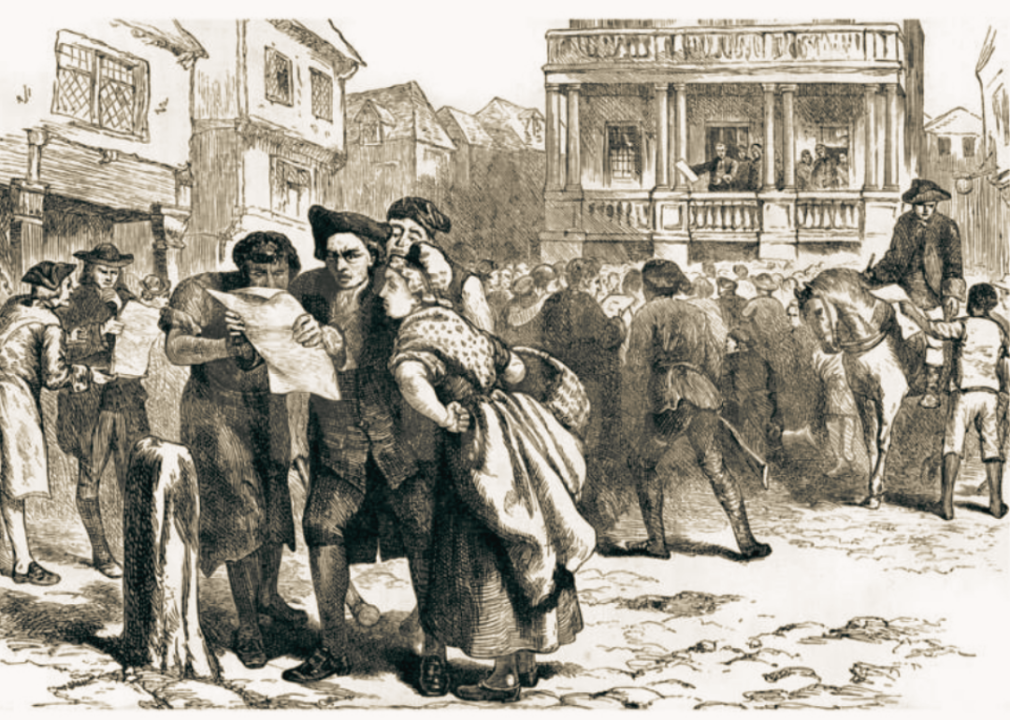
Henry James Stark // Wikimedia Commons
1765: The Stamp Act is handed
Handed by King George III, the Stamp Act of 1765 required most paperwork and paper items within the colonies, together with mail, to be marked with a stamp. This stamp confirmed {that a} direct tax had been paid for the products, which needed to be offered in English coin as a substitute of Colonial foreign money. The income from this laws returned to the British authorities with a purpose to assist pay for British troops who had occupied the Colonies in the course of the Seven Years’ Struggle.
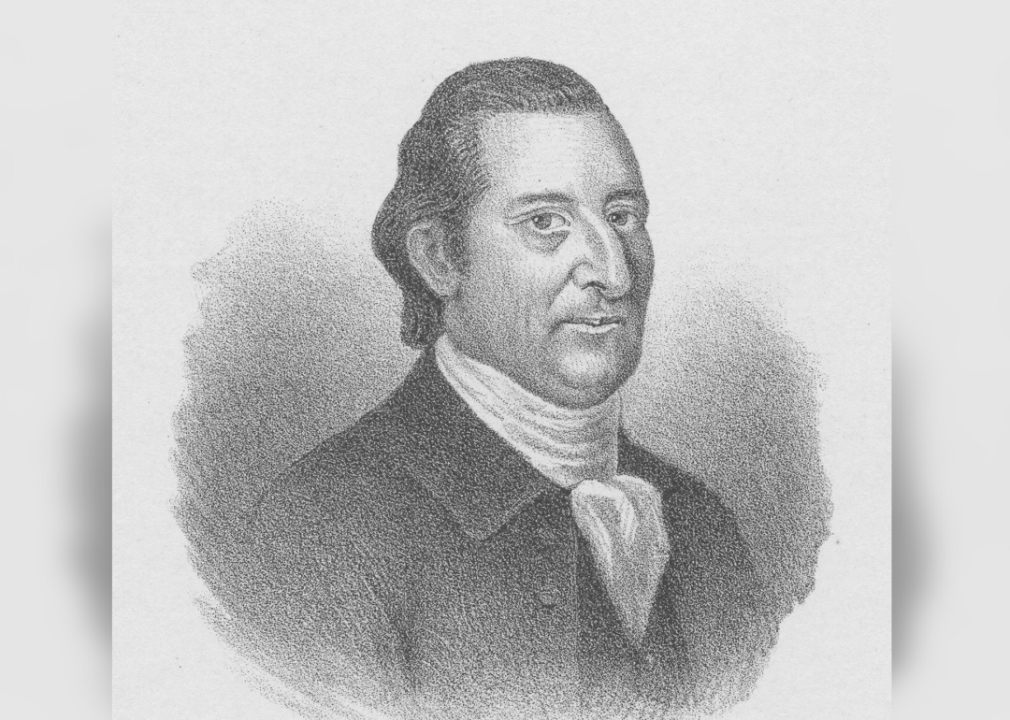
Smith Assortment/Gado // Getty Photographs
1775: William Goddard’s postal tenets are adopted by the Second Continental Congress
William Goddard was a printmaker in Rhode Island and was one of the influential people in ideating the Constitutional Put up in America. Goddard wrote to the Second Continental Congress, petitioning them to create a mail system free from the prying eyes of the federal government—the alternative of the British Royal Put up. Although Goddard was proud to have his concepts adopted, the Congress bypassed him for the position of postmaster normal, awarding it as a substitute to Benjamin Franklin and making Goddard the surveyor of the put up.
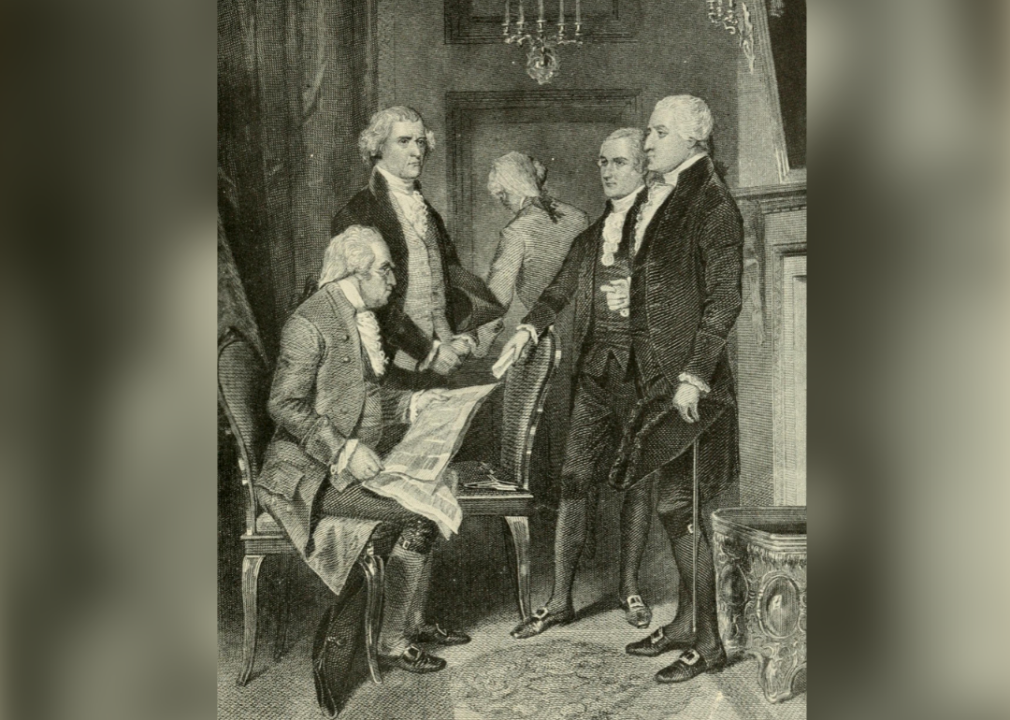
C.M. Stevens // Wikimedia Commons
1780s & 1790s: Extra laws is handed defining the U.S. Put up Workplace Division
Efficient in 1781, Article IX of the Articles of Confederation licensed the fledgling American authorities to construct a postal system; nonetheless, the doc offered no particulars about easy methods to go about such a large enterprise. The U.S. Structure, ratified just some years later in 1788, additionally mentions a nationwide postal system run by the federal authorities, however is equally obscure. It wasn’t till 1792 that President George Washington passed the Postal Act, which established the U.S. Put up Workplace Division, a federal company led by a postmaster normal who sat on the president’s Cupboard.
You might also like: U.S. Army history from the year you were born
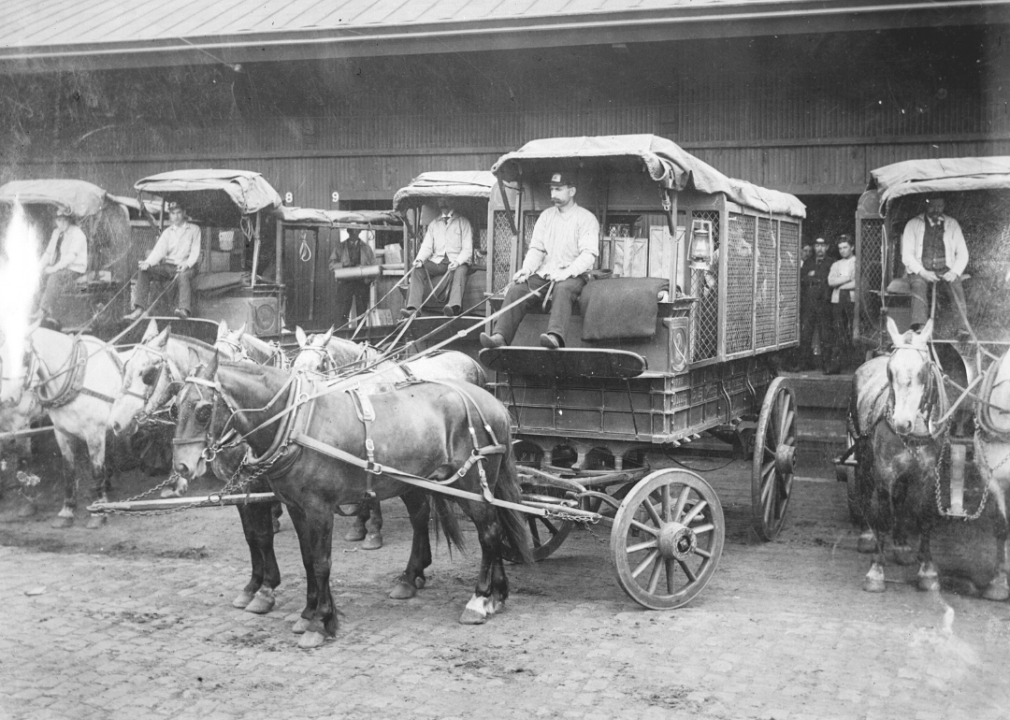
Topical Press Company // Getty Photographs
1802: A federal legislation is handed banning Black folks from carrying mail for the Put up Workplace Division
What is understood immediately because the Haitian Revolution was a collection of finally profitable uprisings of enslaved Haitians in opposition to British and French colonizers from 1791-1804. The success of those uprisings stoked concern within the hearts of pro-slavery People who frightened that enslaved folks within the U.S. would additionally create a resistance motion. Although Black folks had carried native and private mail within the Colonies for many years, Postmaster General Gideon Granger was so involved a few attainable “normal and united operation” that he satisfied Congress to ban Black folks from carrying the mail totally.

Library of Congress
1835: The American Anti-Slavery Society makes use of a technicality to ship pro-abolition supplies as newspapers by way of the Put up Workplace Division
In 1835, slavery was alive and nicely within the U.S., however an abolitionist motion was rising, particularly within the North. To be able to distribute pro-abolition supplies to the South, the American Anti-Slavery Society determined to distribute a newspaper instead of letters, because the Put up Workplace allowed newspapers to be mailed at decrease charges to take care of the liberty of the press. Unsolicited newspapers started exhibiting up on the doorways of Southern houses, inflicting a 3,000-person riot in Charleston, South Carolina, and finally pushing the postmaster normal to declare that native postmasters might determine whether or not or to not censor sure newspaper materials with a purpose to keep away from future violence.
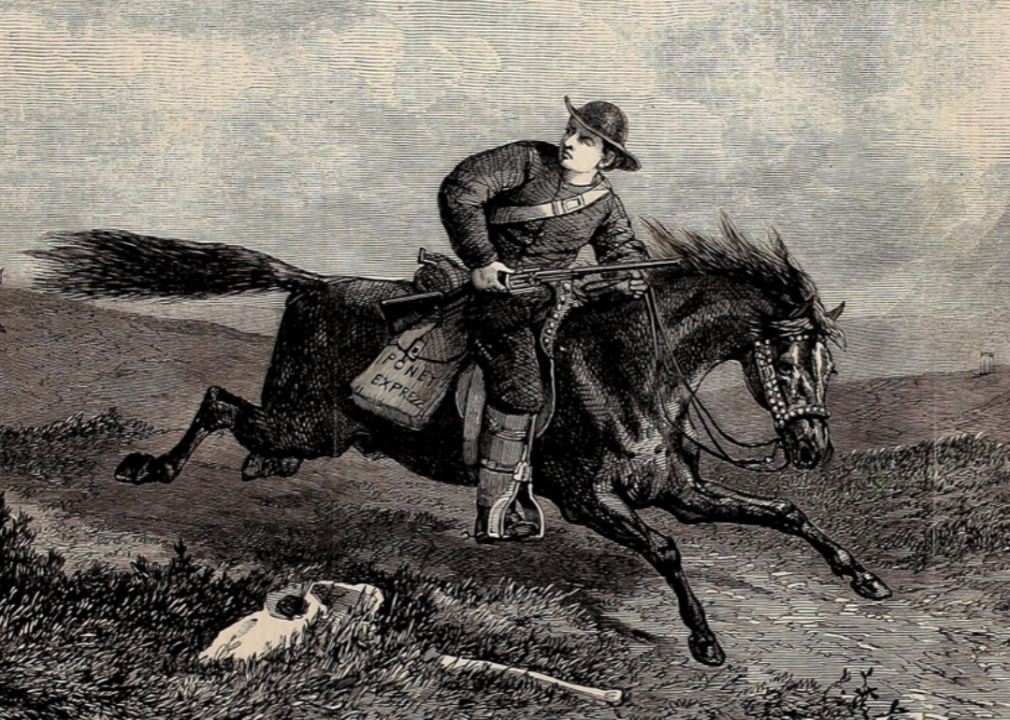
M. Jackson/G. H. Andrews // Wikimedia Commons
1860-1861: The Pony Specific is in operation
Although the Pony Express occupies an nearly legendary place in American consciousness, the operation solely lasted about 18 months and was a personal endeavor. William Russell, William Waddell, and Alexander Majors started the Pony Specific beneath the title of the Central Overland California & Pikes Peak Specific Firm in 1860 with a purpose to display that mail could possibly be delivered from St. Joseph, Missouri, to Sacramento, California, by way of a central overland route in lower than 10 days. The enterprise was initially profitable, however attributable to a lot of provider deaths from the damaging terrain and the introduction of the telegraph, its property had been offered to Wells Fargo and the Overland Mail Firm in 1861 and discontinued altogether shortly thereafter.
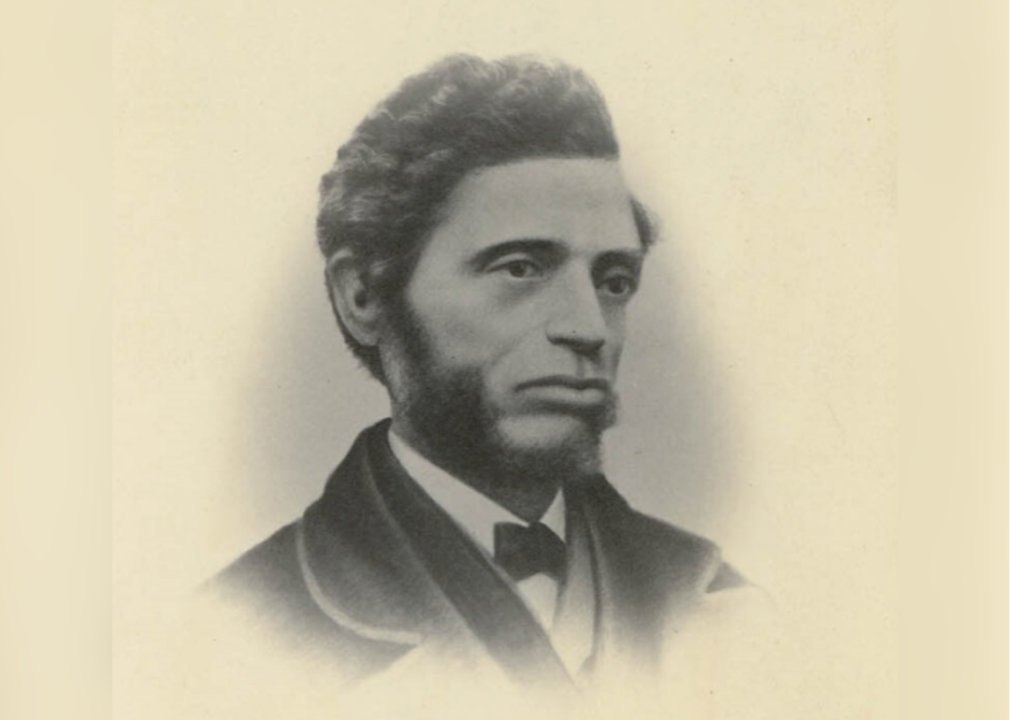
Public Area // Wikimedia Commons
1863: The primary Black worker of the Put up Workplace Division is employed
William Cooper Nell was a civil rights activist and historian who started his affiliation with the mail when he was an apprentice at The Liberator, a pro-abolition newspaper in Boston. From there, Nell proceeded to work with Frederick Douglass on The North Star and advocated for the equal training of Black People all through his life. He was not solely the primary Black worker of the Put up Workplace Division, but additionally the primary identified Black worker of any U.S. federal authorities entity.
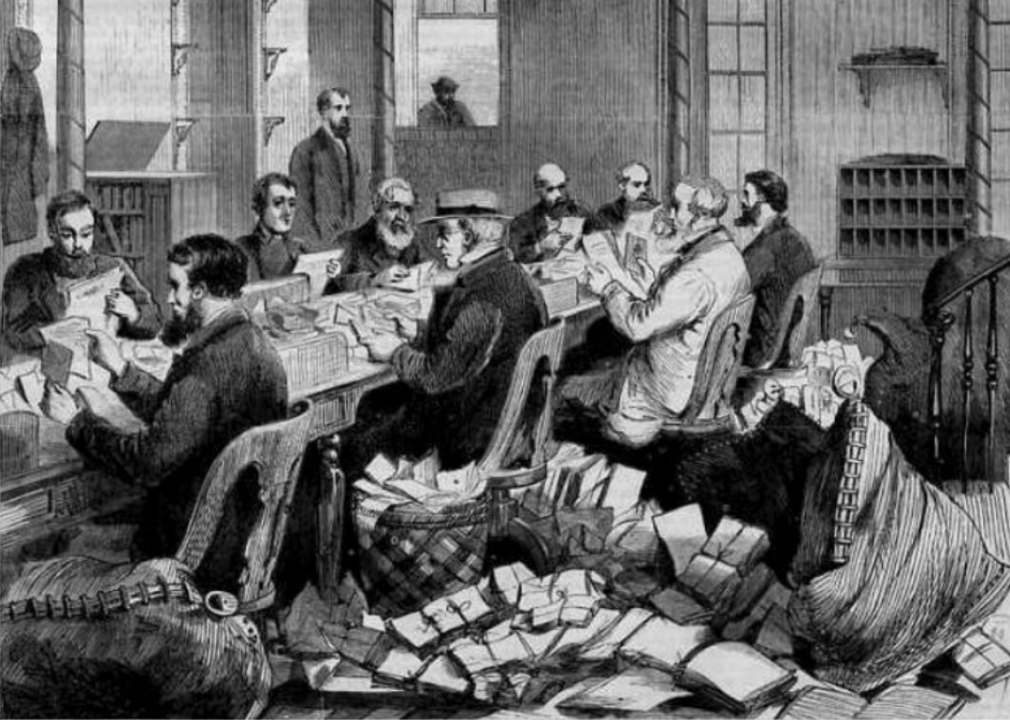
Theodore R. Davis // Wikimedia Commons
1873: Censorship laws generally often called the Comstock Act is handed
The Act for the Suppression of Commerce In, and Circulation of, Obscene Literature and Articles of Immoral Use, also called the Comstock Act, made it explicitly unlawful to ship any materials by means of the mail that was deemed “obscene, lewd, or lascivious,” “immoral,” or “indecent.” Anthony Comstock, the laws’s namesake, was the founder and head of the New York Society for the Suppression of Vice and named a particular agent of the Put up Workplace Division with a purpose to implement this legislation. Objects that had been seized beneath this laws included paperwork about contraception and abortion, info from physicians about sexually transmitted infections, and anatomical illustrations, amongst others.
You might also like: U.S. Marine Corps history from the year you were born
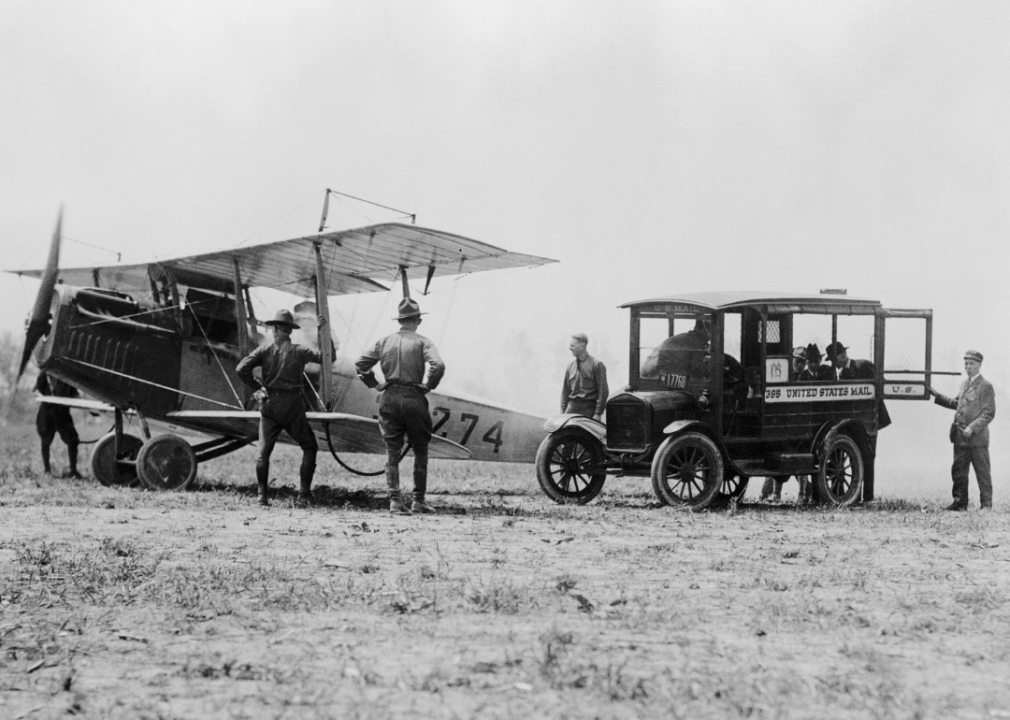
Bettmann // Getty Photographs
1918: The Put up Workplace Division begins airmail efforts
With the event of aviation expertise throughout World Struggle I and an ever-growing want to maneuver the mail quicker, the Put up Workplace Division turned to planes for assistance. Its first flights launched on Could 15, 1918, between Washington D.C., Philadelphia, and New York. The service was offered to non-public contractors in 1927 and offered the monetary foundation for immediately’s industrial passenger flight trade.
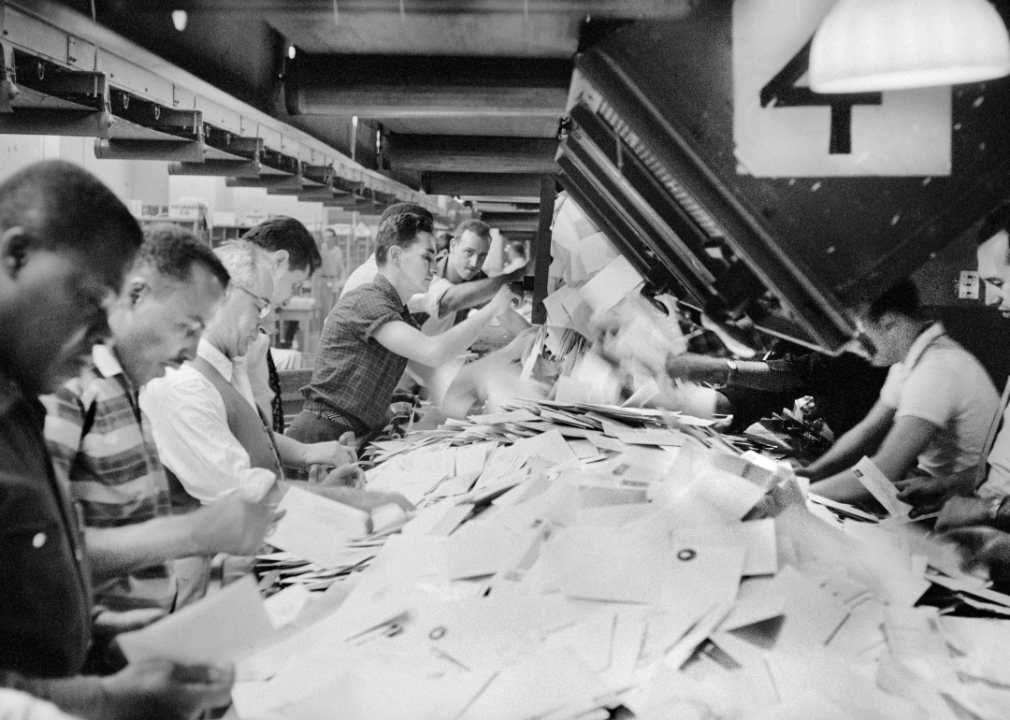
Common Historical past Archive/Common Photographs Group by way of Getty Photographs
Nineteen Sixties: Mail backups are rampant throughout the U.S., inflicting the implementation of zip codes
By 1960, the Put up Workplace was processing 63.7 billion items of mail yearly, greater than double what it had been in 1940. This big inflow of mail brought on huge backups, particularly in cities like Chicago, as a result of it was being sorted by hand; nonetheless, the environment friendly mechanization of mail sorting wanted addresses to be extra particular and standardized. The ZIP code was created in 1963 to just do that, although it confronted vital pushback from Americans who had been afraid their small city names can be lowered to only a quantity.
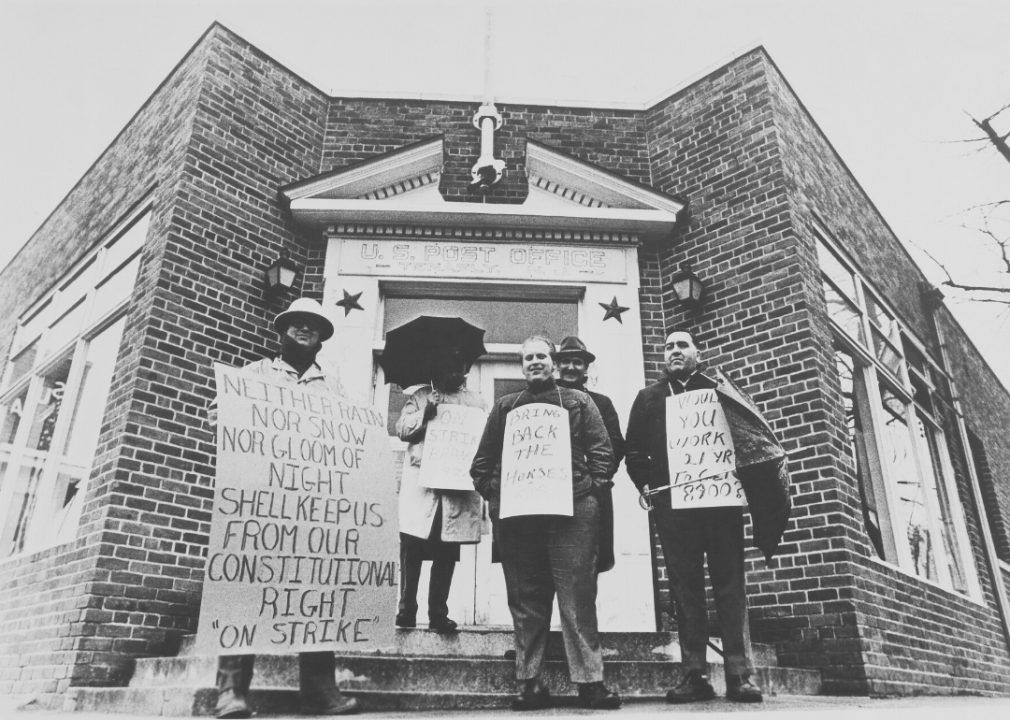
Keystone-France/Gamma-Keystone by way of Getty Photographs
1970: Put up Workplace Division workers go on strike, ensuing within the first postal unions and the reform of the Put up Workplace Division into the U.S. Postal Service
The 1970 postal strike was led by the newly established Nationwide Affiliation of Letter Carriers and included practically 200,000 postal employees. The mail slowed a lot in the course of the strike that the Nationwide Guard was introduced in to kind and carry the mail. Finally, the NALC was in a position to negotiate a union contract, and Congress handed the Postal Reorganization Act, creating america Postal Service as a quasi-governmental group that funds itself independently.
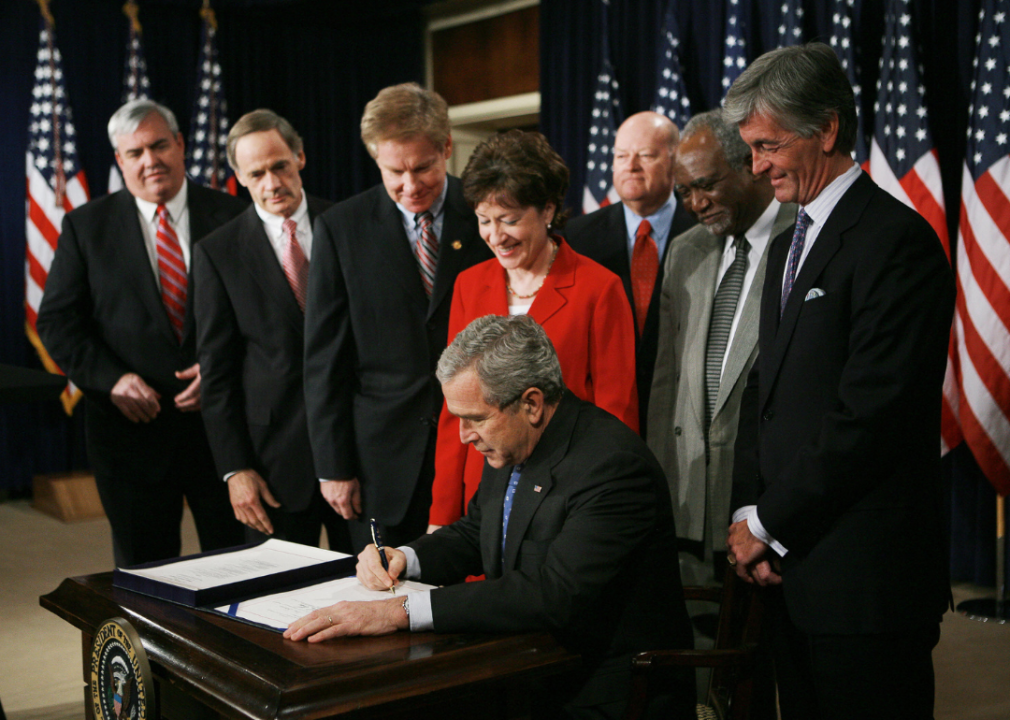
MANDEL NGAN/AFP by way of Getty Photographs
2006: The Postal Accountability and Enhancement Act is handed
The Postal Accountability and Enhancement Act overhauled many facets of how the USPS operates financially. It requires the USPS to pay retirement advantages for workers 75 years prematurely and maintains postal workers on an impartial medical protection system that’s not built-in with Medicare like different authorities entities. The PAEA additionally has provisions that restrict the Postal Service’s skill to boost costs on postal items and develop into new income streams with out congressional approval.
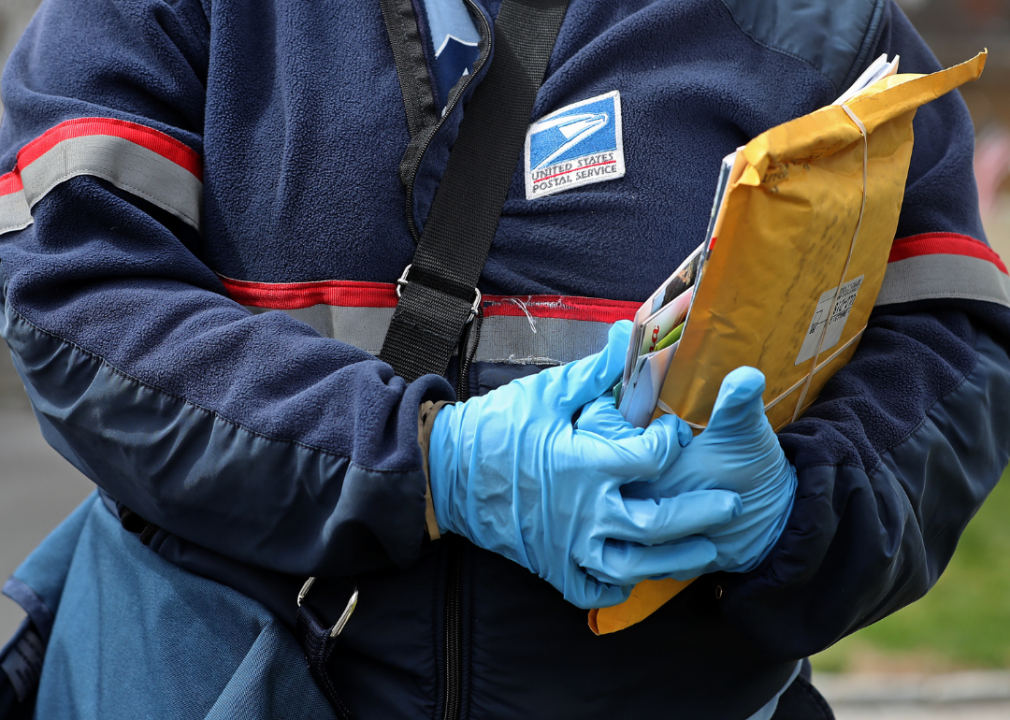
David L. Ryan/The Boston Globe by way of Getty Photographs
2020: The U.S. Postal Service experiences excessive mail slowdowns because of the COVID-19 pandemic
As a result of COVID-19 pandemic, Americans relied more and more on the work of the USPS, ordering extra packages on-line, getting groceries delivered, and even receiving medicines by way of mail. This inflow in quantity, together with infrastructure points and staffing difficulties, spiraled into ongoing mail delays. These points impacted the method of the 2020 Presidential election, as many citizens—an estimated 46% of all votes cast—selected to vote by mail with a purpose to keep away from going to polling locations in individual and risking COVID-19 publicity or an infection.
[ad_2]
Source link